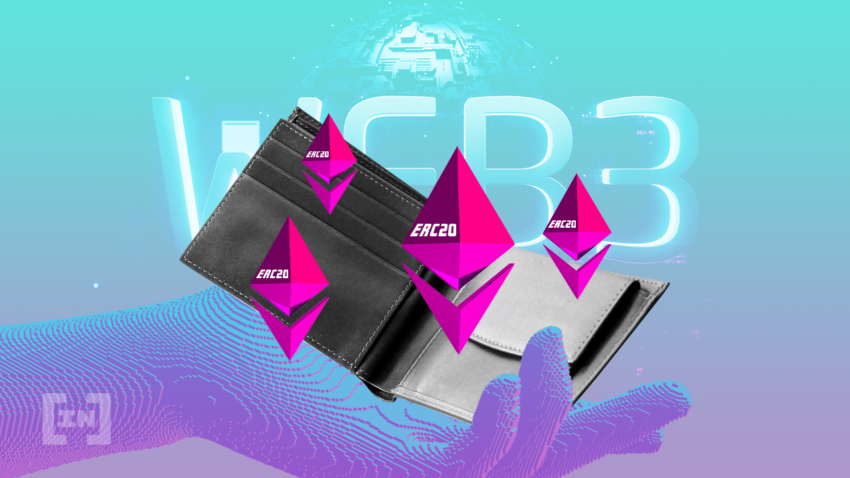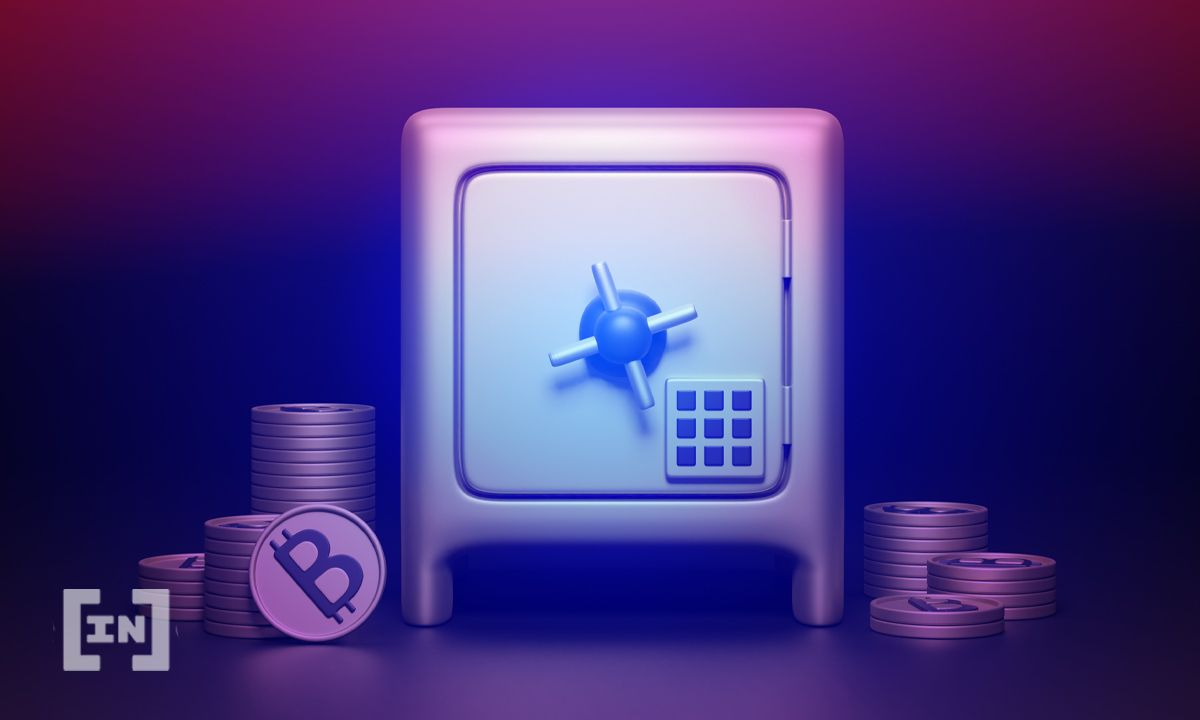“Hot wallets vs. cold wallets” is a popular discussion in the crypto market. They both have their uses, as we will see. This guide covers all the differences between the two types of wallets.
We’ll look at what hot and cold wallets are, examples of them, and when either wallet is useful. There’s a lot to cover, so let’s jump right in.
In this guide:
Benefits of using crypto wallets

A specialized crypto wallet allows you to send, receive, and spend crypto. It is a safer option for long-term investors. It is advisable, especially if you have sizable funds, not to have it sitting on an exchange. While most services of this kind are safe, instances of hacking or technical malfunction have existed in the past.
Crypto wallets are improving every day. Modern variations allow for the storage of a huge variety of coins. Not every coin is listed on every major exchange. By using a good crypto wallet, you can easily manage your investment portfolio.
Different types of crypto wallets
“Hot” and “cold” wallets refer to different solutions for storing cryptocurrencies. The names simply infer the wallet’s connectivity status to the Internet.
Hot wallets are digital crypto wallets that need an internet connection to function. Cold wallets are physical devices that hold crypto. They’re not connected to the Internet. This makes it less prone to hacker attacks or technical malfunctions.
Although more types of wallets are available, they are usually hybrids of the hot and the cold variations.
What is a hot wallet?

Hot wallets are connected to a web server. Technically, this means that the owner of one can purchase crypto and NFTs from anywhere in the world, provided that they have an internet connection.
It’s easy to understand the appeal of hot crypto wallets. For one thing, these are usually free and can be downloaded from the Internet. They are also easy to use and are favored by day traders. Someone conducting numerous trades throughout the day might simply not wish to move funds in and out of cold storage.
The downside of hot wallets is that they aren’t as safe as cold wallets. Risks involving software errors are enough to keep some crypto users away from them.
Hot wallets differ based on their characteristics. There are basically three types: desktop, web, and mobile wallets.
Desktop wallets
Desktop crypto wallets have higher security capabilities than web-based wallets. However, technically, they are less secure than physical wallets. A desktop crypto wallet is downloaded to your computer or laptop.
Web wallets
Web wallets run directly through a webpage browser. Generally, they do not include additional software that runs on your desktop or on your computer. Still, hybrid types do exist.
For example, crypto games or NFT marketplaces using Ethereum tokens will require a connection to a web wallet such as Metamask, arguably the most popular crypto wallet at the moment.
Mobile wallets
Mobile crypto wallets work in the same way as desktop wallets. They can be used with either iOS or Android operating systems. The greatest benefit is that a mobile wallet is more portable than a desktop crypto wallet. Your mobile crypto wallet is always with you.
Examples of popular hot wallets
ZenGo
Zengo offers a mobile wallet, and the company operates in the U.S., U.K., AU, and CAN markets. One unique feature of ZenGo’s wallet is that it has a very strong security feature in the form of biometrics. Besides this, it functions in the same way that major wallets do, and also has a very intuitive interface that connects to multiple blockchains.
Electrum
Electrum is a popular crypto hot wallet that excels in its core function. It is a versatile wallet that is suitable for most users.
Mycelium
Mycelium is another popular cryptocurrency wallet that works on iOS and Android devices. The wallet’s features may be intimidating for crypto novices, though. This wallet is ideal for cryptocurrency enthusiasts who are looking for features such as QR-code-based payment, offline storage, and control of their private keys.
Coinbase Wallet
Coinbase Wallet’s uniqueness is that it functions as a standalone application, and you don’t need to register for an account with the Coinbase crypto exchange. Although it was originally designed to support Ethereum and ERC-20 tokens, it has since expanded to include other cryptocurrencies.
What is a cold wallet?

Cold wallets are the preferred choice for many security-conscious crypto users. A cold wallet has no connection to the Internet. Any piece of hardware specifically designed to store cryptocurrency can be a crypto wallet. Many of them are variations of USB sticks.
Cold storage wallets are generally very secure. A cold wallet is usually not accessible to anyone without the necessary security information. Furthermore, these devices are usually quite small. Crypto users should have no trouble carrying those around in their pockets.
Cold storage wallet options include paper wallets, physical Bitcoin items, and offline computers that store cryptocurrency. Reputable exchanges try to compete with these by offering cold storage options, as well as hardware devices.
Paper wallets
A paper wallet is a piece of paper that contains private keys or QR codes that facilitate cryptocurrency transactions. Paper wallets are inaccessible via the Internet. This is why some consider them more secure than any other form of cryptocurrency storage. This is technically true, although it comes with some setbacks.
However, paper wallets are vulnerable to water and fire damage. You must also protect your paper wallet against theft or loss. You must not let others see your security information, nor misplace it for personal use.
Hardware wallets
A hardware wallet is a crypto wallet that stores the private keys of the user on a secured hardware device. There are several obvious perks. First of all, crypto assets are protected even on an unsafe computer. Hardware wallets provide extra protection against malware, phishing sites, cyber-attacks, and other threats.
Hardware wallets are connectable to multiple blockchain networks at once. There is also the matter of convenience. A hardware wallet is often a small, plug-in device that allows you to securely access your crypto assets from any location. Without the need to create new accounts, a hardware wallet provides you with access to multiple DApps.
You can also trade directly from your hardware wallet. Technically, this is the safest method to conduct crypto transactions.
Examples of popular cold wallets
Because of the growing demand, several hardware crypto wallet options have been launched in recent years. Each has its unique characteristics. Consequently, each has its fans and, in some cases, detractors. Here’s a quick look at the most popular of these.
Trezor Model One
The Trezor One model is likely the oldest and most well-known crypto hardware wallet. It was produced by Satoshi Labs, a pioneering company in the crypto space. It supports over 1000 assets. While Trezor One was certainly the pioneer of these kinds of hardware wallets, other, newer devices have set about improving certain key features.
Ledger Nano S & X
Ledger is a French start-up that produces the Nano S and X models. These hardware wallets look similar to a USB thumb drive but features a steel shell. Any personal computer or mobile device that supports Bluetooth or USB can connect with the device. At the time of writing, Ledger supports over 1800 assets.
NGRAVE
Instead of using Bluetooth or USB ports, NGRAVE uses a one-way QR code to communicate information to connected devices. It provides info to these devices while staying online. This means that users won’t have to worry about software being compromised.
Ballet Wallet
The Ballet Wallet resembles a regular credit card. The card features a serial number. On the bottom of the card, users will also find a scratch-off wallet passphrase. To unlock the card’s funds, users must also peel off the sticker to reveal its QR code. The card works in conjunction with mobile software.
Hot wallet vs. cold wallet

Hot wallets are more user-friendly and often connect to cryptocurrency exchanges. This makes it easier to transfer your holdings than with a cold wallet. It is generally safe for day traders and those that are not working with colossal amounts of crypto.
Cold wallets have no internet connectivity and, as such, are the more secure option. They’re easy to carry around. And because regularly they can feature a wide array of crypto, it is easy to manage your portfolio.
Should you switch to a hot or cold wallet immediately?
Cryptocurrency investors need to be concerned about where and how they store their digital assets. However, choosing between hot wallets and cold wallets must be done according to a crypto user’s unique requirements. If you are looking to safely store your cryptocurrency, a cold wallet may be the best choice. If you are looking for convenience and don’t mind the risk, hot wallets are also an option.
Whatever your choice happens to be, it’s certain that given the rise of blockchain technology, you’ll have plenty of options from which to choose.
Frequently asked questions
Are cold wallets better than hot wallets?
Overall, cold wallets are preferable to hot wallets. Cold wallets outshine hot wallets in one key aspect, security.
Is Coinbase a hot or cold wallet?
The Coinbase Wallet is a digital wallet that uses hot storage to store cryptocurrencies. The Coinbase Wallet is, therefore a hot cryptocurrency wallet.
Is a cold wallet worth it?
Yes, overall, cold wallets are worth the small investment of buying them.
Are cold wallets safe?
Cold wallets are quite safe. Because cold wallets cannot be accessed via the Internet, these offline wallets are the best way to hold cryptocurrencies. It is nearly impossible to hack one of these wallets, and privacy is better protected.
Are hot wallets safe?
Some hot wallets are relatively safe, being used by millions of users. Hot wallets are a safer alternative to keeping crypto funds on an exchange. Still, there are other safer alternatives, such as cold wallets, and hardware devices that keep crypto funds offline.


